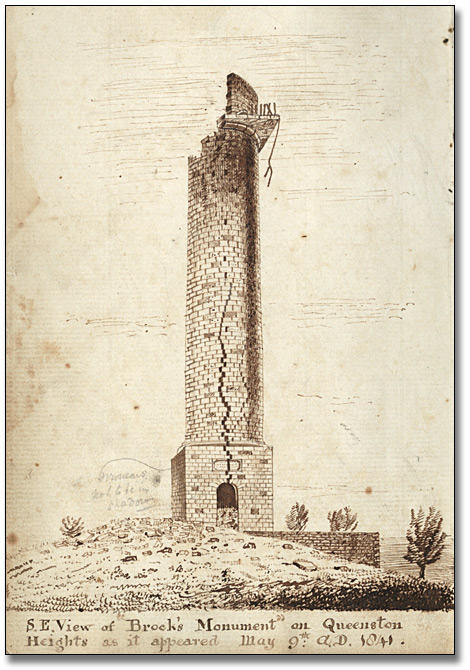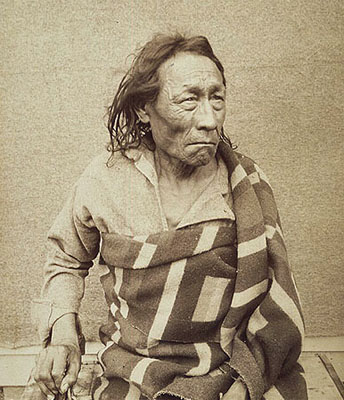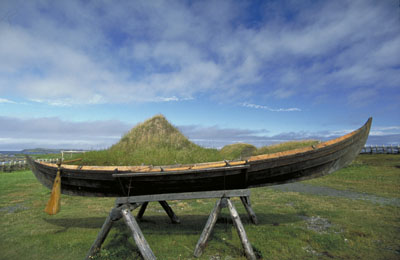Article
Basques
Basques were expert fishermen and sailors from the southeast corner of the Bay of Biscay. With the Portuguese, they were early arrivals to Newfoundland's Grand Banks.

Enter your search term
Signing up enhances your TCE experience with the ability to save items to your personal reading list, and access the interactive map.
Create AccountArticle
Basques were expert fishermen and sailors from the southeast corner of the Bay of Biscay. With the Portuguese, they were early arrivals to Newfoundland's Grand Banks.
"https://d3d0lqu00lnqvz.cloudfront.net/media/media/2d045c80-3539-44a1-a87c-7b1a734b8c91.jpg" // resources/views/front/categories/view.blade.phphttps://d3d0lqu00lnqvz.cloudfront.net/media/media/2d045c80-3539-44a1-a87c-7b1a734b8c91.jpg

Article
Peter (or Pierre) Bostonais Pangman, Métis leader, bison hunter (born 20 October 1791 in the North Saskatchewan River Valley area, present-day AB; died 4 March 1850 in St. François Xavier, present-day MB). Peter Bostonais Pangman was a skilled hunter who helped provide much-needed bison meat to the Red River Colony. He was actively involved in the Pemmican Wars and events surrounding the Battle of Seven Oaks. As part of the Pembina fur trade, Pangman was a key figure who rallied and inspired the Red River Valley Métis to see and express themselves with an identity separate from surrounding Indigenous peoples. The name Bostonais is variously spelled Bastonnais and Bostonnais.
"https://www.thecanadianencyclopedia.ca/images/tce_placeholder.jpg?v=e9dca980c9bdb3aa11e832e7ea94f5d9" // resources/views/front/categories/view.blade.phphttps://www.thecanadianencyclopedia.ca/images/tce_placeholder.jpg?v=e9dca980c9bdb3aa11e832e7ea94f5d9

Article
As part of the campaign to invade Canada led by Richard Montgomery, Arnold led an expedition along the Kennebec, Dead and Chaudière rivers, arriving before Québec with only 700 of his original troop of 1100 men.
"https://d3d0lqu00lnqvz.cloudfront.net/media/media/6439cd69-8c40-4285-8ee3-fb7b7c9fa521.jpg" // resources/views/front/categories/view.blade.phphttps://d3d0lqu00lnqvz.cloudfront.net/media/media/6439cd69-8c40-4285-8ee3-fb7b7c9fa521.jpg

Article
Exterior view of the Abbey Church, designed by Dom Paul Bellot, a Benedictine monk (courtesy Dan S. Hanganu).A major landmark in Mission, BC, is the Benedictine monastic complex, Westminster Abbey (courtesy Dr Noel Hall).PreviousNext Various monastic traditions were already in existence in western Europe when Saint Benedict of Nursia founded the Abbey of Monte Cassino in Italy in 529. His rule, which quickly replaced most others in Western monasteries, is known for its moderation and...
"https://d3d0lqu00lnqvz.cloudfront.net/media/media/31ddf4eb-2a59-4969-932c-cea873fe5f25.jpg" // resources/views/front/categories/view.blade.phphttps://d3d0lqu00lnqvz.cloudfront.net/media/media/31ddf4eb-2a59-4969-932c-cea873fe5f25.jpg

Article
Benjamin Bowring, silversmith, watchmaker, merchant (b in Devonshire, Eng 1778; d at Liverpool, Eng June 1846). One of a large number of Devonshire tradesmen who immigrated to St John's, Bowring first visited Newfoundland in 1811; in 1815 he sold his shop in Exeter and opened a store in St John's.
"https://www.thecanadianencyclopedia.ca/images/tce_placeholder.jpg?v=e9dca980c9bdb3aa11e832e7ea94f5d9" // resources/views/front/categories/view.blade.phphttps://www.thecanadianencyclopedia.ca/images/tce_placeholder.jpg?v=e9dca980c9bdb3aa11e832e7ea94f5d9

Article
Benjamin Frobisher, fur trader (b at Halifax, Eng c 1742; d at Montréal 14 Apr 1787), brother of Joseph and Thomas Frobisher.
"https://d3d0lqu00lnqvz.cloudfront.net/media/media/BenjaminFrobisher.jpg" // resources/views/front/categories/view.blade.phphttps://d3d0lqu00lnqvz.cloudfront.net/media/media/BenjaminFrobisher.jpg

Editorial
The following article is an editorial written by The Canadian Encyclopedia staff. Editorials are not usually updated.
"https://d3d0lqu00lnqvz.cloudfront.net/media/media/49ba20fd-6d57-4ea4-9659-791941b8dd61.jpg" // resources/views/front/categories/view.blade.phphttps://d3d0lqu00lnqvz.cloudfront.net/media/media/49ba20fd-6d57-4ea4-9659-791941b8dd61.jpg

Article
In the mid-1930s, at the height of the Great Depression, Prime Minister R.B. Bennett’s political demise seemed inevitable. He sought to reverse the tide running against his Conservative Party. In January 1935, he began a series of live radio speeches outlining a “New Deal” for Canada. He promised a more progressive taxation system; a maximum work week; a minimum wage; closer regulation of working conditions; unemployment insurance; health and accident insurance; a revised old-age pension; and agricultural support programs. But Bennett’s 11th-hour proposals were seen as too-little, too-late. He lost the 1935 election to William Lyon Mackenzie King and the Liberals.
"https://d3d0lqu00lnqvz.cloudfront.net/media/media/b31ca29f-26f7-4622-a011-31d66b4c1d33.jpg" // resources/views/front/categories/view.blade.phphttps://d3d0lqu00lnqvz.cloudfront.net/media/media/b31ca29f-26f7-4622-a011-31d66b4c1d33.jpg

Article
Beothuk (meaning “the people” or “true people” in their language) were an Indigenous people who traditionally inhabited Newfoundland. At the time of European contact in the 16th century, the Beothuk may have numbered no more than 500 to 1,000. Their population is difficult to estimate owing to a reduction in their territories in the early contact period. While it has been said that the Beothuk are now extinct, Mi’kmaq oral tradition denies this claim. Indigenous oral histories teach that the Beothuk intermarried with other Indigenous nations along the mainland after they had been forced out of their coastal territories by settlers. According to this perspective, Beothuk descendants live on in other Indigenous communities.
"https://d3d0lqu00lnqvz.cloudfront.net/media/media/5a96371d-c37d-49fd-a6da-ab62b28474d0.jpg" // resources/views/front/categories/view.blade.phphttps://d3d0lqu00lnqvz.cloudfront.net/media/media/5a96371d-c37d-49fd-a6da-ab62b28474d0.jpg

Article
Bernard Donald Macdonald, Roman Catholic bishop of Charlottetown (b at Allisary, PEI 25 Dec 1797; d at St Dunstan's College, near Charlottetown, 30 Dec 1859). In 1812 Macdonald was one of the first 2 Island boys sent to study for the priesthood at the Grand Seminary of Québec.
"https://www.thecanadianencyclopedia.ca/images/tce_placeholder.jpg?v=e9dca980c9bdb3aa11e832e7ea94f5d9" // resources/views/front/categories/view.blade.phphttps://www.thecanadianencyclopedia.ca/images/tce_placeholder.jpg?v=e9dca980c9bdb3aa11e832e7ea94f5d9

Article
Mistahimaskwa (Big Bear), Plains Cree chief (born near Fort Carlton, SK; died 17 January 1888 on the Little Pine Reserve, SK). Mistahimaskwa is best known for his refusal to sign Treaty 6 in 1876 and for his band’s involvement in violent conflicts associated with the 1885 North-West Resistance.
"https://d3d0lqu00lnqvz.cloudfront.net/media/media/d3f8c588-0cfa-414d-b360-98aa3449b9e1.jpg" // resources/views/front/categories/view.blade.phphttps://d3d0lqu00lnqvz.cloudfront.net/media/media/d3f8c588-0cfa-414d-b360-98aa3449b9e1.jpg

Article
Bjarni Herjolfsson, Norse explorer (dates of birth and death unknown; lived in the 10th century). Herjolfsson was likely the first European to sight the east coast of North America. While sailing from Iceland to Greenland in 986 CE, Herjolfsson sighted lands that were later determined to be Baffin Island, Labrador and Newfoundland. Although Herjolfsson never set foot in North America, Leif Ericsson later retraced his voyage, establishing a settlement at what he called Vinland.
"https://d3d0lqu00lnqvz.cloudfront.net/media/media/67bd8e2c-dd2e-4e06-8cb1-542f09e45cd5.jpg" // resources/views/front/categories/view.blade.phphttps://d3d0lqu00lnqvz.cloudfront.net/media/media/67bd8e2c-dd2e-4e06-8cb1-542f09e45cd5.jpg

Article
The practice of slavery was introduced by colonists in New France in the early 1600s. The practice was continued after the British took control of New France in 1760 (see British North America.) For about two hundred years, thousands of Indigenous and Black African people were bought, sold, traded and inherited like property in early Canada. Slavery was abolished (made illegal) throughout British North America in 1834. (This article is a plain-language summary of slavery in Canada. If you are interested in reading about this topic in more depth, please see our full-length entry on Black Enslavement in Canada.)
"https://d3d0lqu00lnqvz.cloudfront.net/media/media/10e1983c-bdbe-4650-9121-50dd7f143f28.jpg" // resources/views/front/categories/view.blade.phphttps://d3d0lqu00lnqvz.cloudfront.net/media/media/10e1983c-bdbe-4650-9121-50dd7f143f28.jpg

Article
The role of Black people within the history of the fur trade is rarely considered. Black people were rarely in a position to write their own stories, so often those stories went untold. This owes to a complex set of factors including racism and limited access to literacy. Black people are also not the focus of many historical documents. However, historians have identified several Black fur traders working in different roles, and even an entire family of Black fur traders who left their mark on history.
"https://d3d0lqu00lnqvz.cloudfront.net/media/home-page-images/por-1261-r1.jpg" // resources/views/front/categories/view.blade.phphttps://d3d0lqu00lnqvz.cloudfront.net/media/home-page-images/por-1261-r1.jpg

Article
Black Hawk (Black Sparrow Hawk, Makataimeshekiakiak), Sauk War Chief (b at Saukenuk, near Rock Island, Ill, 1767; d near Des Moines, Iowa, 3 Oct 1838).
"https://d3d0lqu00lnqvz.cloudfront.net/media/media/10141ccd-3d95-4eca-96ba-3362cbca9249.jpg" // resources/views/front/categories/view.blade.phphttps://d3d0lqu00lnqvz.cloudfront.net/media/media/10141ccd-3d95-4eca-96ba-3362cbca9249.jpg
